Matildas prove why ‘the idea that no one wants to watch women’s sport is hogwash’
The idea that no one wants to watch women’s sport is “hogwash” – and the Matildas have the cold, hard numbers to prove it.
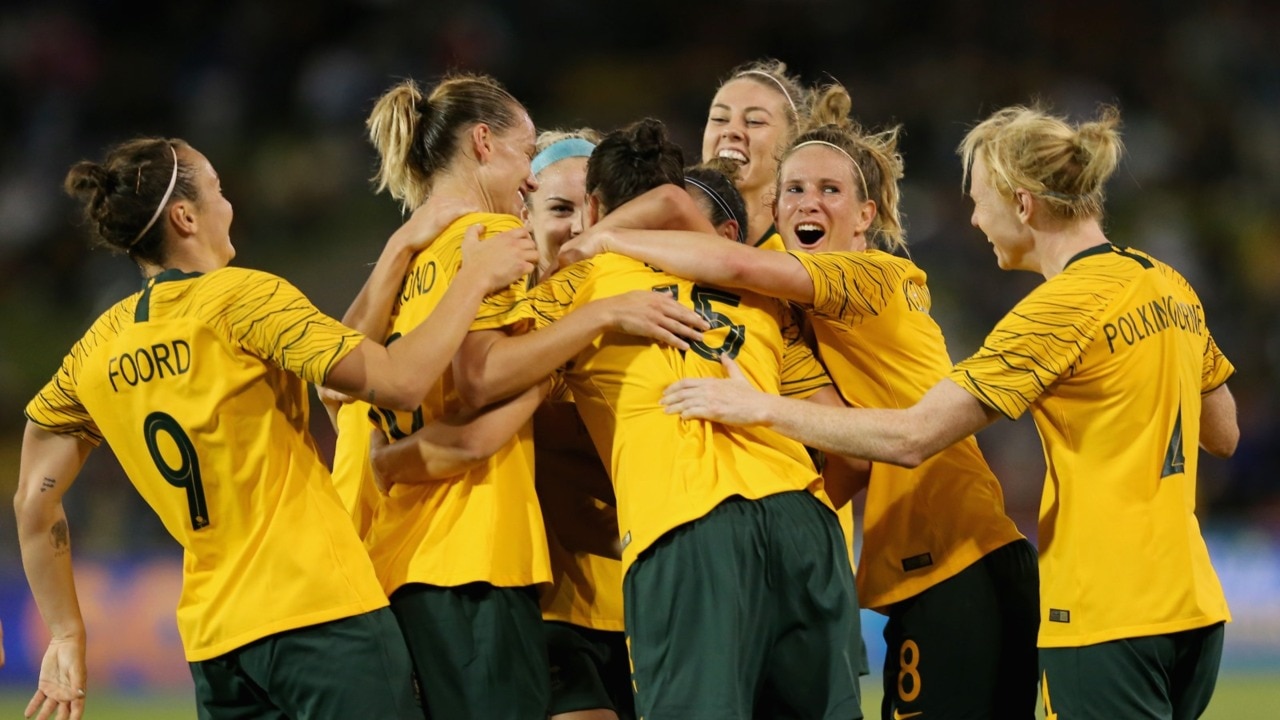
World Cup
Don't miss out on the headlines from World Cup. Followed categories will be added to My News.
COMMENT
The idea that no one wants to watch women’s sport is hogwash.
Monday night’s extraordinary FIFA Women’s World Cup television and streaming ratings for the Matildas v Denmark game – an average of 3.56 million people across Australia – proved that.
The point is that people simply want to watch good sport – and the Matildas and the rest of the World Cup has provided that.
They don’t, however, want to watch second-rate sport. And most of the inferior quality offerings happen to be played by women.
It’s not a sexist thing. Sports fans just want to watch a quality product. And some women’s sports, when compared to the men’s versions – at least for now – aren’t that exciting.
I’ve never been a soccer person, but having watched a bit of the Matildas in recent weeks, it’s hard to deny they put on a good game.
Their skills are exceptional and the play is professional. It is more or less imperceptible from the men’s game.
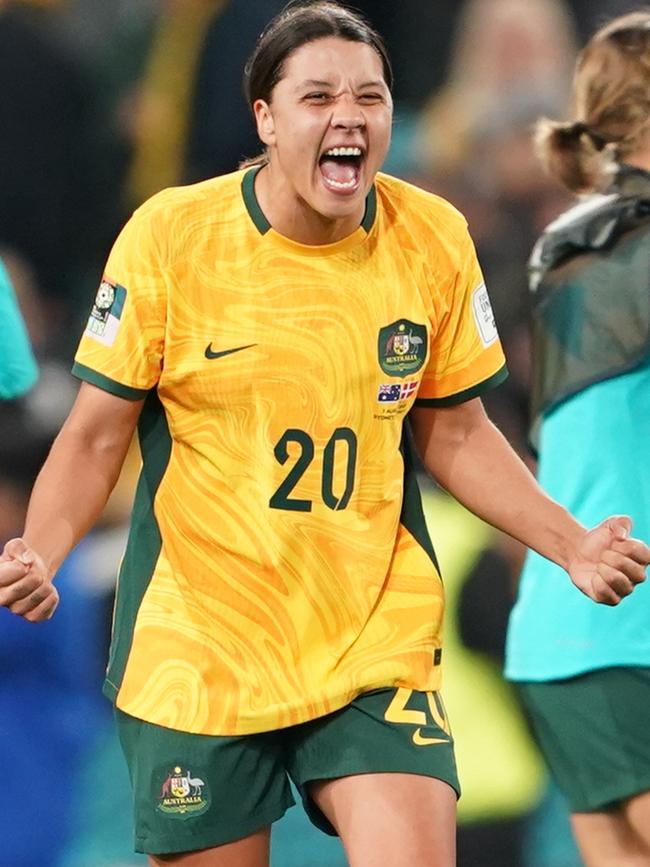
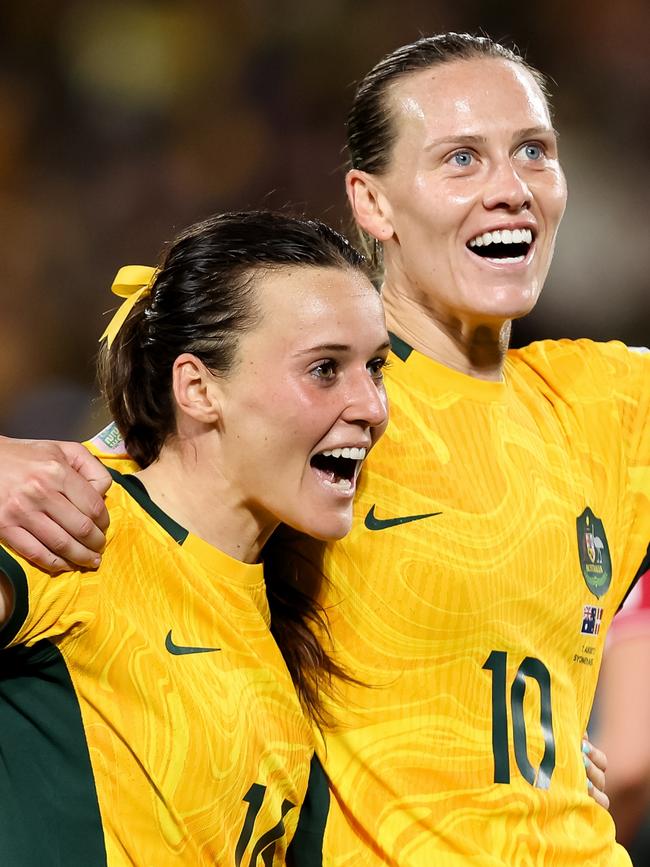
That’s why people have been watching it in record numbers. The sex of those on the field doesn’t matter a jot – but the quality of the game they play does.
AFLW, on the other hand, is scrappy and low-scoring. They generally can’t kick as far as the men and their skills are nowhere near the same level. The result is an ordinary product for spectators.
That’s not to say there isn’t merit in AFLW and that the skill sets won’t improve over time. But as it stands, the AFLW, as a viewing product, doesn’t hold a candle to the men’s league. The numbers prove it. According to the AFL’s figures, average television viewership for AFLW has declined from 180,000 in its first season in 2017 to just 53,000 last year. Game attendance was also down 60 per cent.
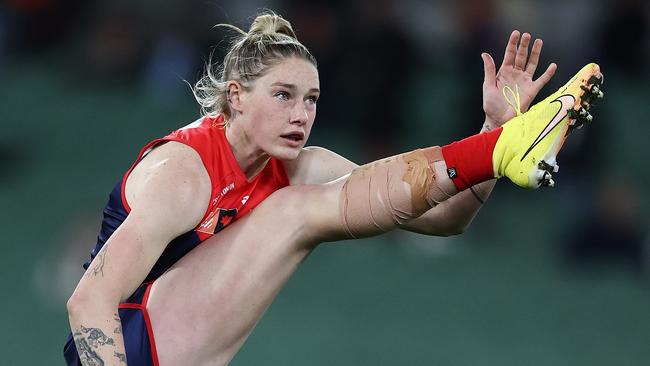
It’s not some great sexist conspiracy by ooga booga macho sports nuffies who think women don’t belong in the game – in fact, Roy Morgan research in 2021 found the majority of AFLW viewers were men.
You can bet many of the 3.56 million who were enthralled by the Matildas on Monday night were people who have stopped watching other women’s sports because they couldn’t hack the quality.
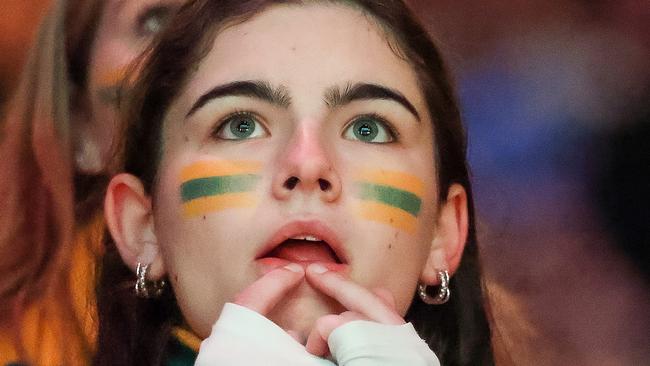
The argument from many in female sport has long been that if you just gave it the same airtime as the men, it would garner the same support. But giving something airtime won’t convince people to watch – only putting on a good show will.
The Women’s World Cup arguably had less hype and promotion than State of Origin this year and yet it has obliterated Rugby League’s television ratings. Remind me how the faltering of some women’s sport is the result of sexism?
In the world of racing, where I own one great horse and an assortment of other duds, male and female jockeys compete against each other every day without anyone batting an eyelid.
Jamie Kah is one of the best jockeys in the country. Gai Waterhouse is one of the country’s most successful trainers. Frances Nelson KC is one of Australia’s smartest and most decorated racing administrators, having served as chair of Thoroughbred Racing SA, Racing Australia and vice-chair of the Asian Racing Federation.
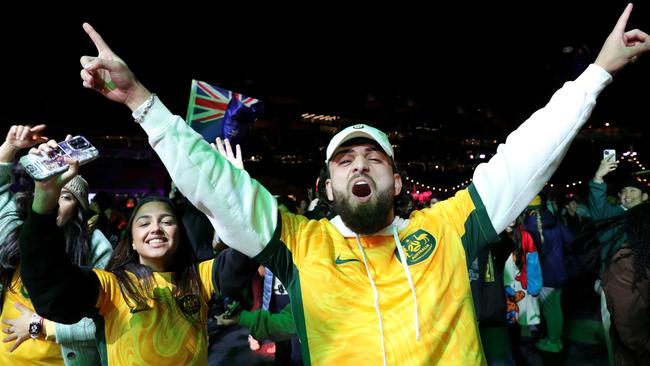
No one opts not to put a jockey on their horse because she’s a woman.
The three most celebrated Australian horses in the past two decades – Winx, Black Caviar and Makybe Diva – also happen to be mares, by the by.
Female swimming, athletics and tennis all carry the same prestige as their male equivalents because they are equally good to watch.
Cathy Freeman winning the 400m at the Sydney Olympics in 2000 is one of this country’s biggest sporting moments.
Australians love and are eager to support women’s sport – they just don’t want to be served a low-quality product and be expected to back it simply because there are women on the field.
Originally published as Matildas prove why ‘the idea that no one wants to watch women’s sport is hogwash’





